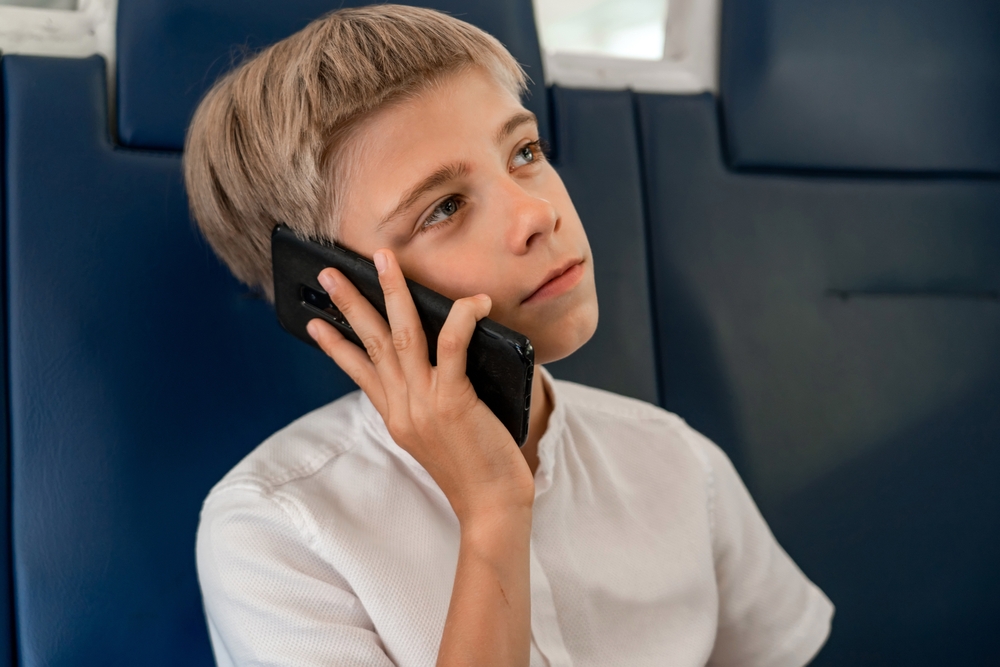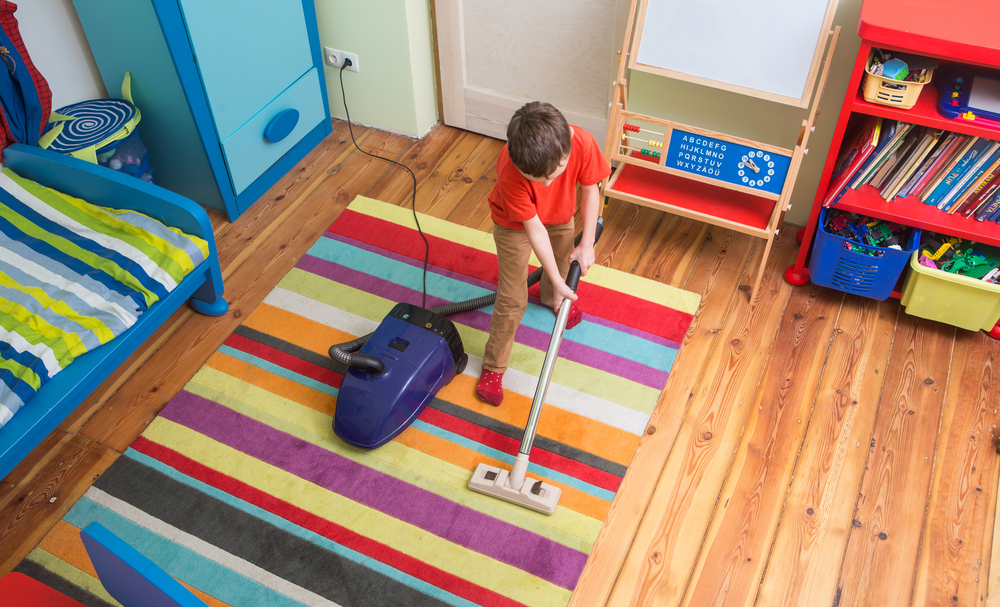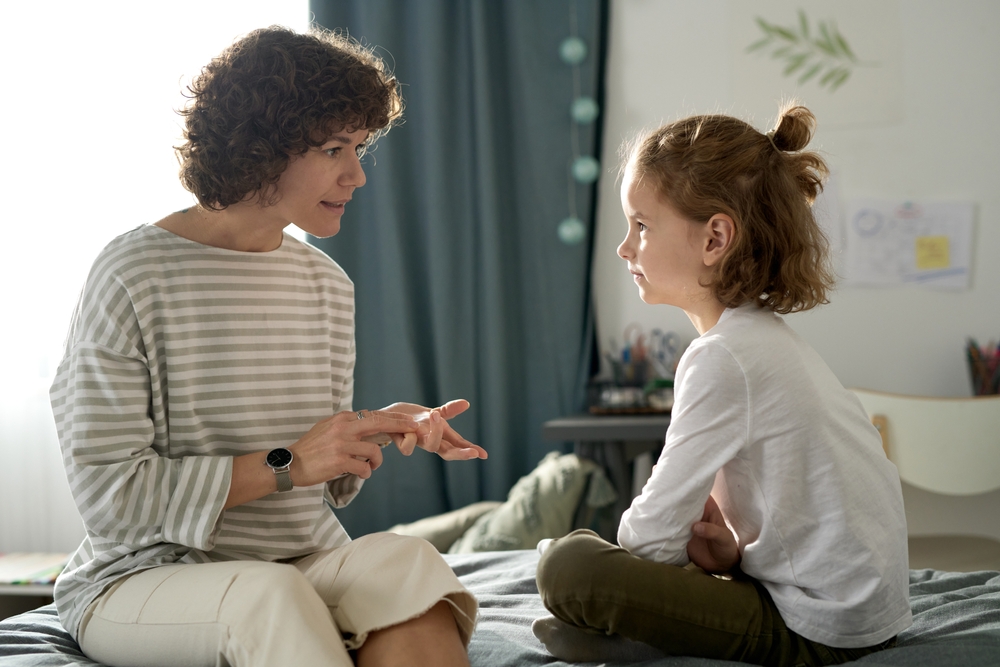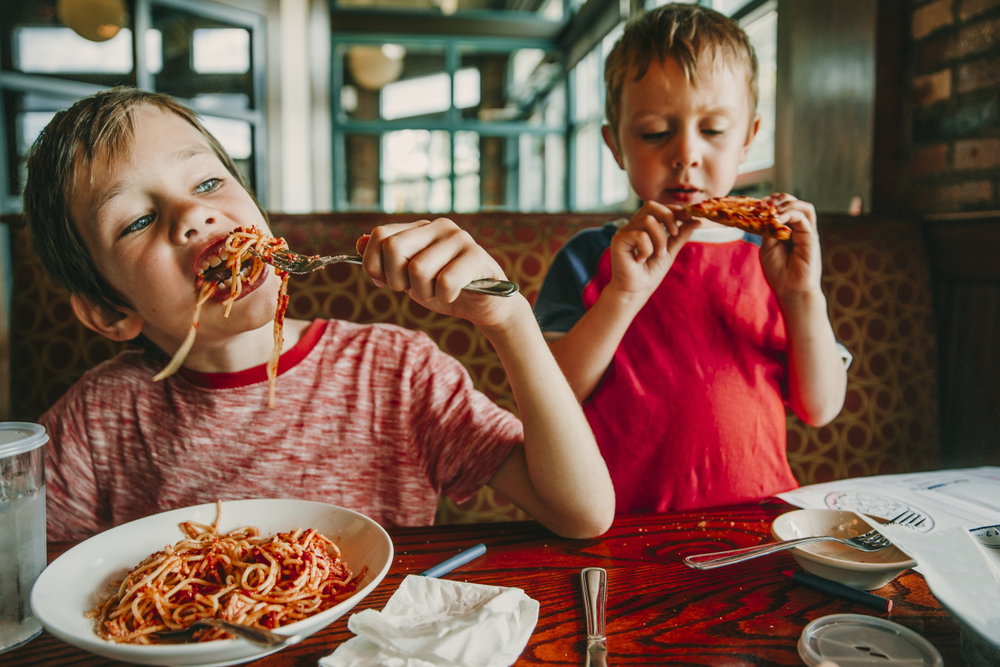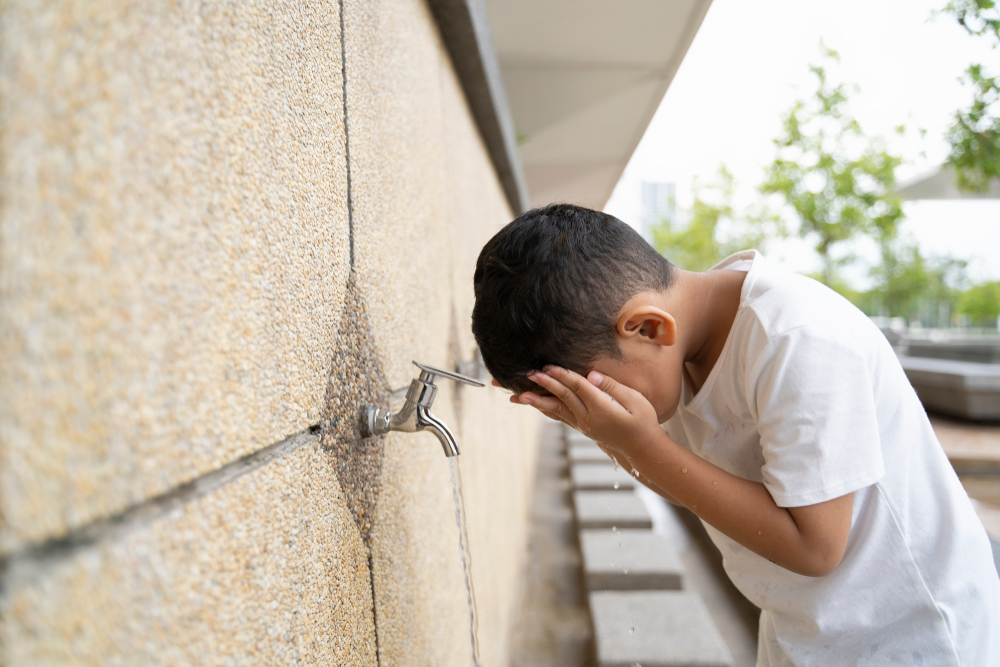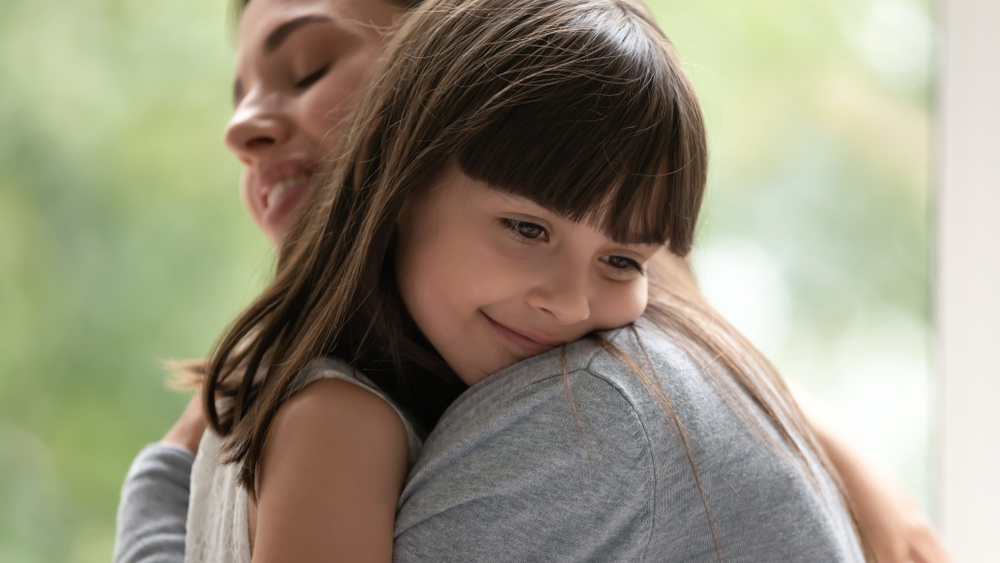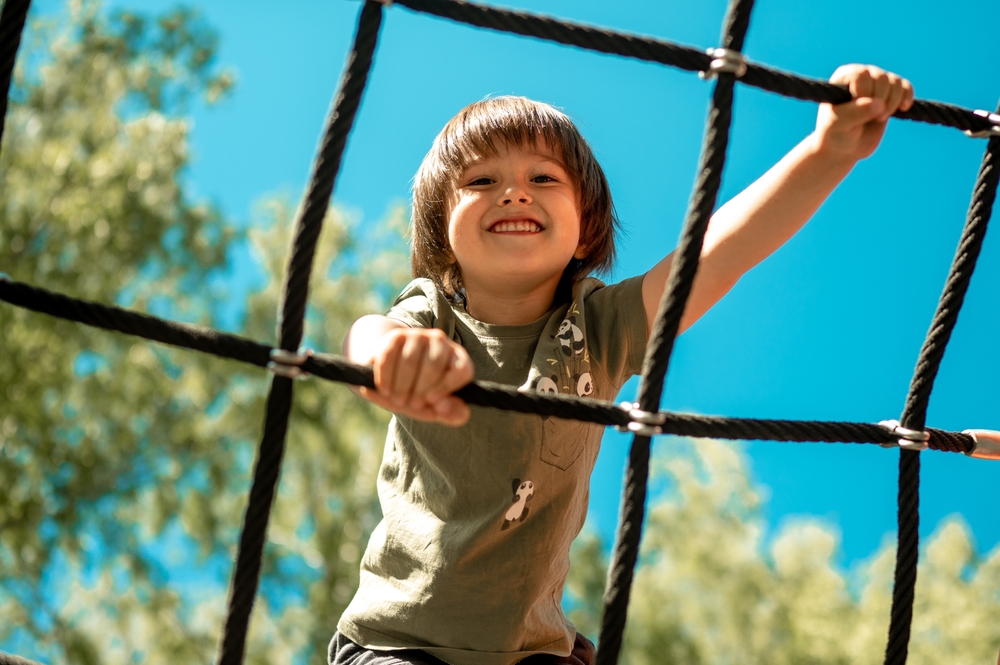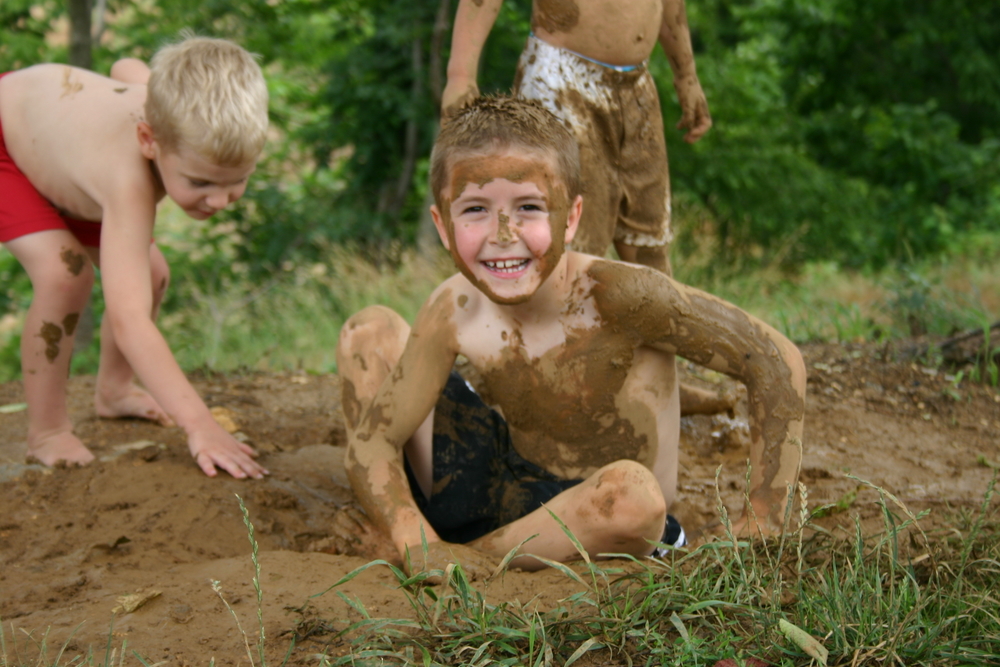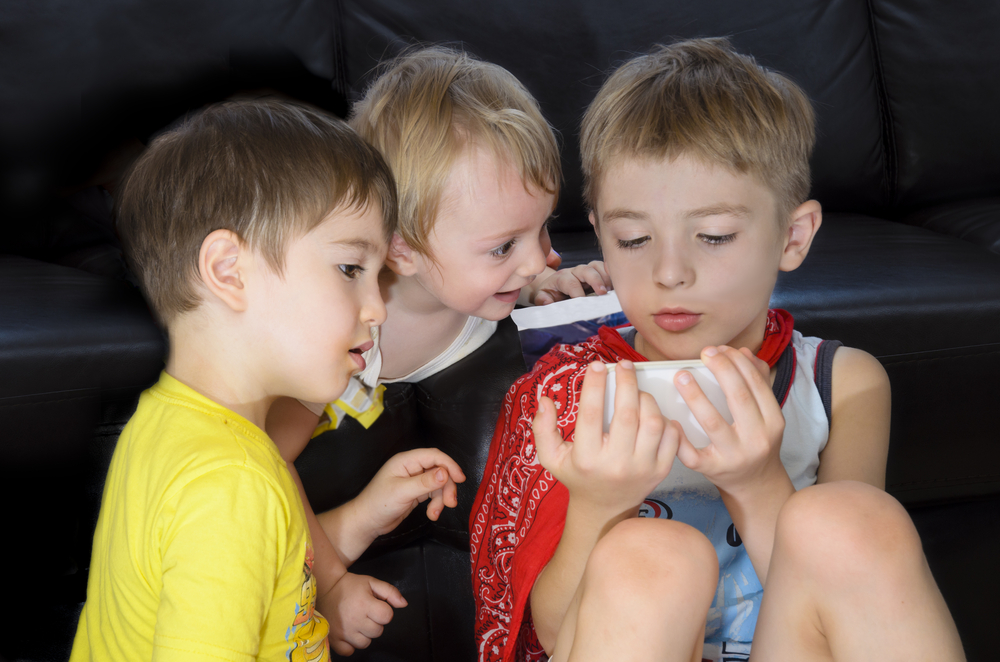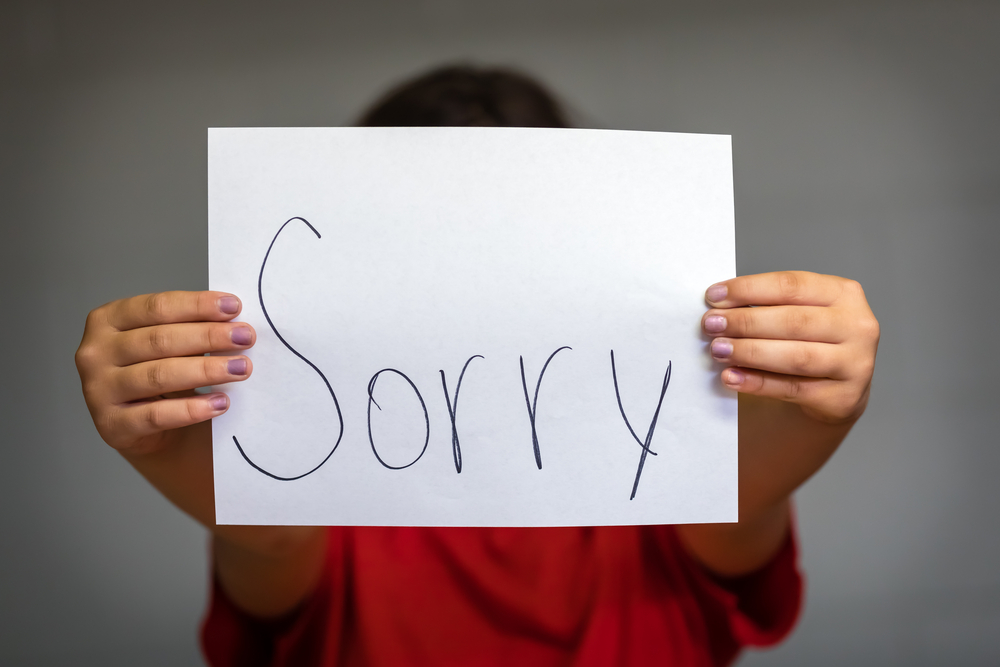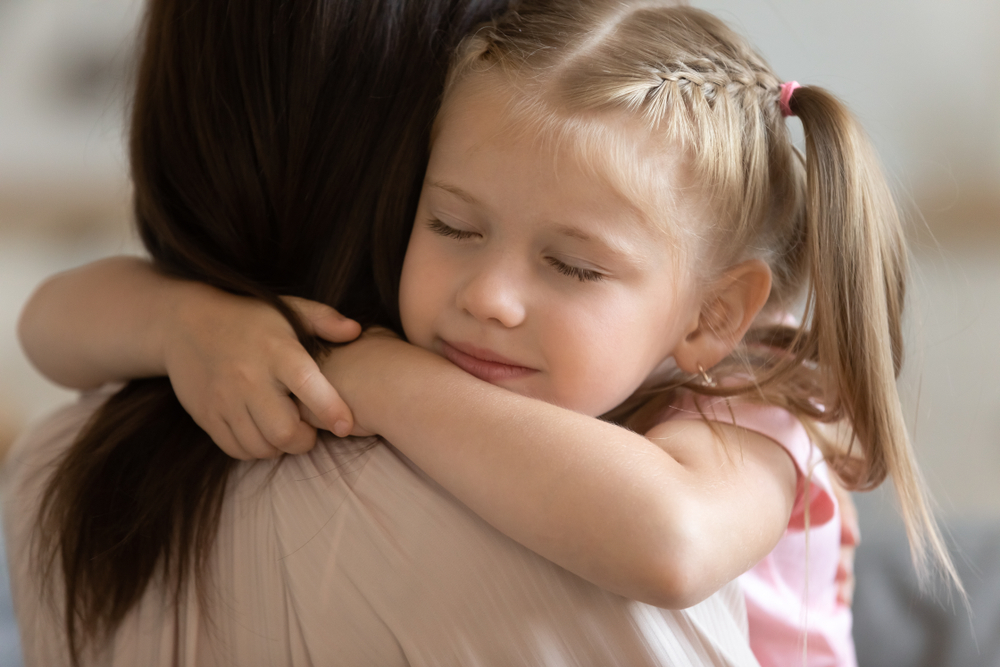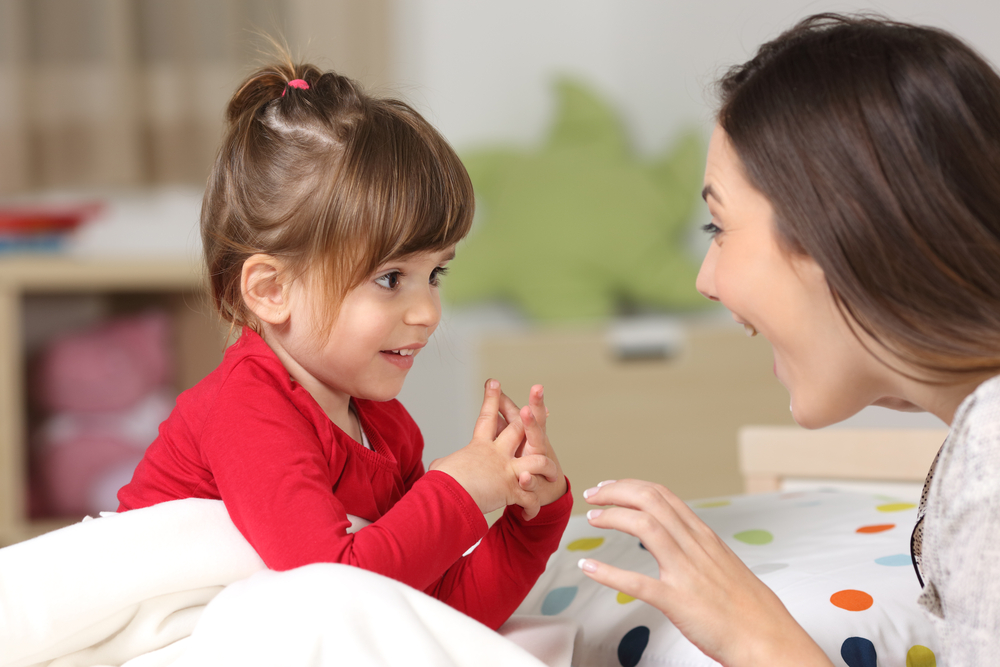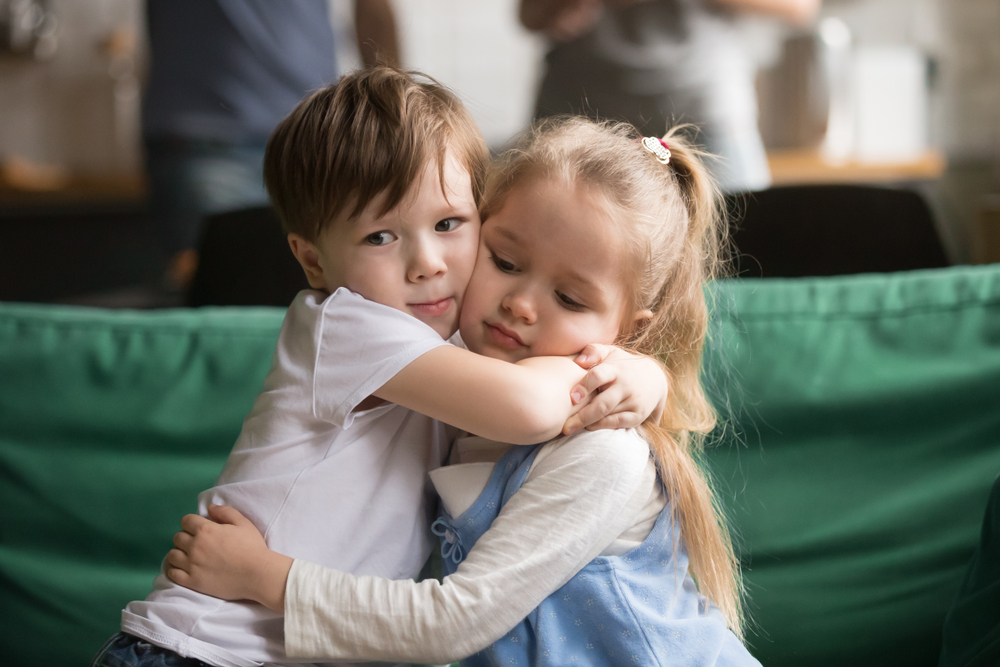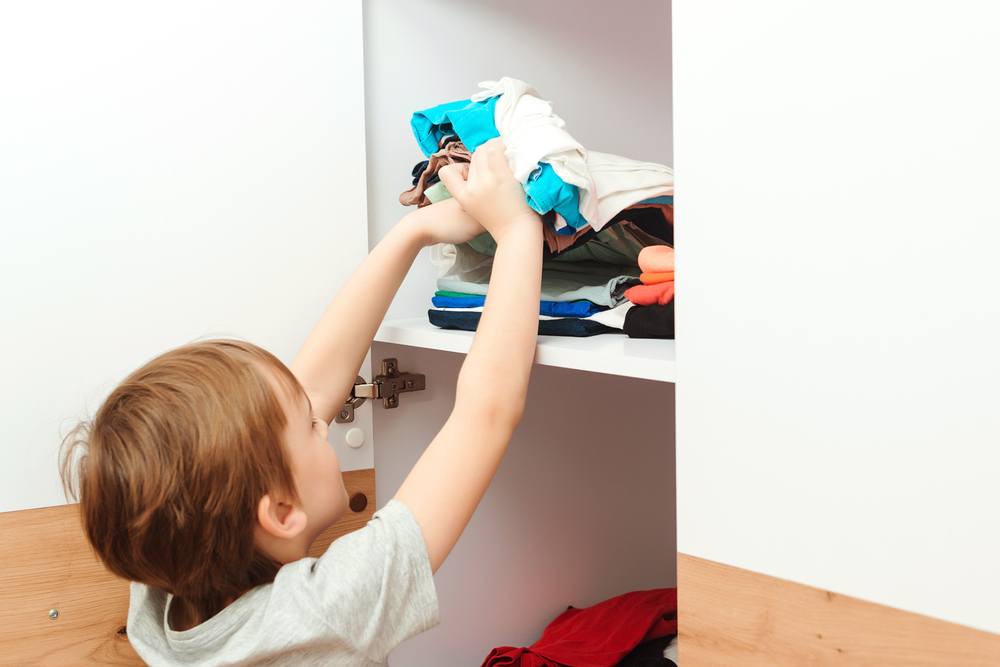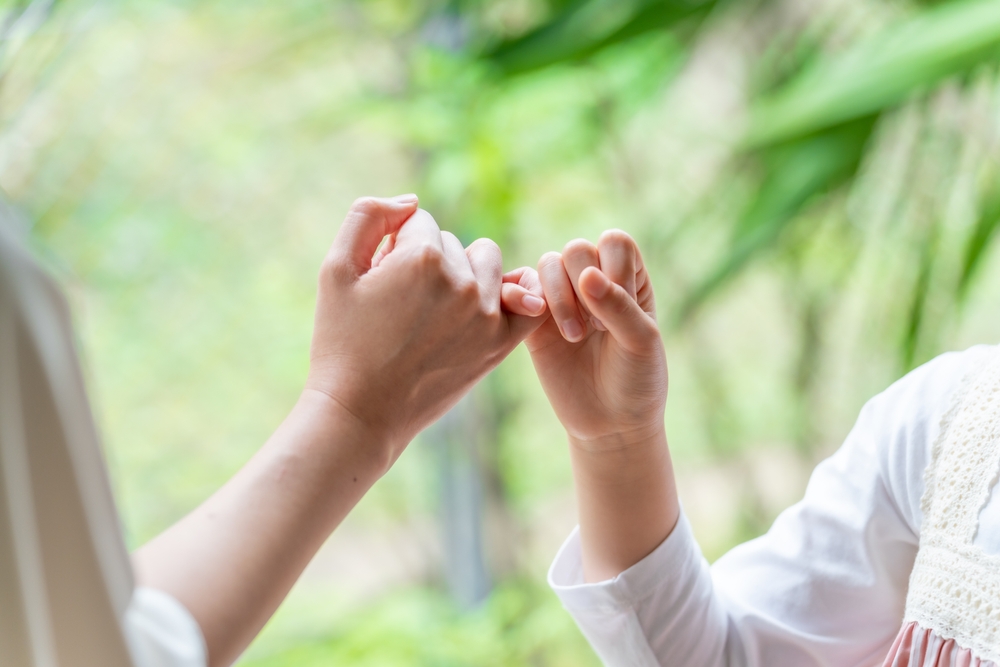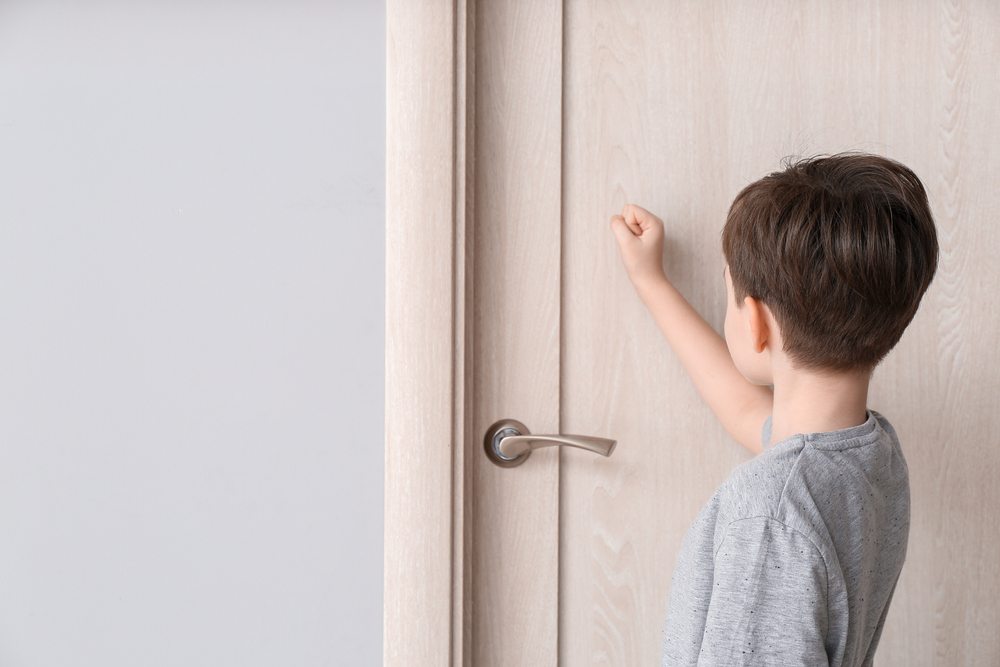Mind Your Manners
A lot of things have changed in the world—including parenting. Studies show that children who are taught basic etiquette tend to fare better in live and end up happier. Yet, the more time goes on, the more it seems like no one is teaching their kids good manners anymore.
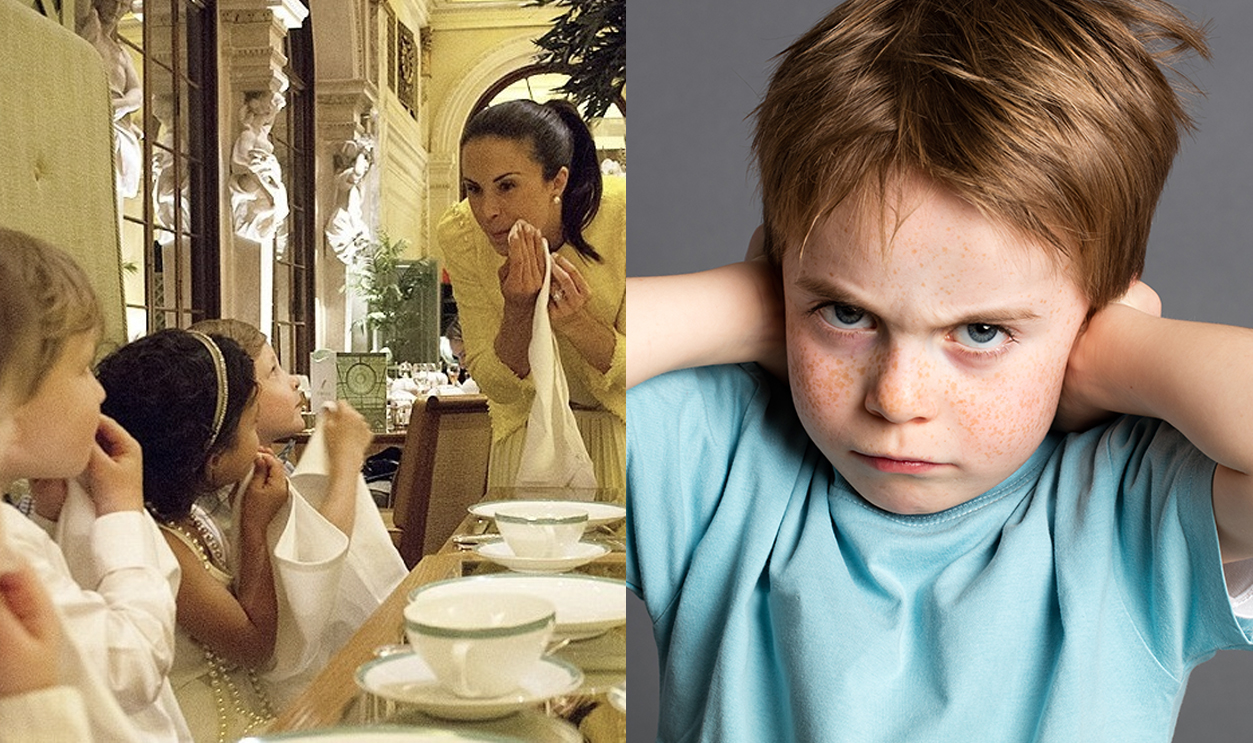
“Please” And “Thank You”
When it comes to teaching kids manners, this is usually where parents start. It’s Etiquette 101 to say please and thank you when asking for or receiving something. Yet, when’s the last time you heard a younger person in a store or restaurant say these simple words during an interaction with a clerk or server? It’s really falling off.
Speaking On The Phone In Public
When we were growing up, our parents didn’t have to teach us this one, because there was no speaking on the phone in public without cellphones. Though this rule seemed to be more common when phones first came out, it’s really been more frequent to see people having LOUD conversations in public—even in quiet places.
Respecting Elders
There’s a move in recent years where parents encourage their kids to express their boundaries and say no when something makes them uncomfortable. While we don’t disagree with this in theory, in practice, it often means that kids are straight-up ignoring their elders.
Instilling a sense of respect for elders is so important for children—as they have so much to learn from older generations.
Being Responsible
Kids today have so much on their plates, between school and extracurricular activities, that they barely have time to sleep or eat. While it’s important for them to be engaged in activities that help them grow and socialize, it’s also important that kids learn that a household doesn’t run itself.
Kids need to be given household chores—it’ll not only help them when they live on their own, but the sense of responsibility that it instills will make one day help them in the workplace as well.
Knowing When To Pipe Up
The old adage used to go “Children should be seen and not heard”. While that’s a bit extreme, there’s something to be said about teaching kids to use their words carefully, and to only cut in when they either have something to contribute or something to ask, instead of dominating or derailing a conversation.
Table Manners
Teaching kids table manners can be one of the most challenging parts of parenting—after all, there are a lot of them for a young child to remember—but that doesn’t mean it doesn’t need to be done. Most important, they need to be taught to chew with their mouths closed and not to talk while eating.
Once those basics are covered, things like asking to be excused before leaving the table or using utensils properly can be added on afterward.
Taking Pictures In Sensitive Places
Young people who spend their time taking photos and videos to chronicle their day seem to forget that not everyone wants to be in the background of their “content”. We’ve even heard of people who had to be told not to take videos in changing rooms, gym locker rooms, and saunas.
 Pav-Pro Photography Ltd, Shutterstock
Pav-Pro Photography Ltd, Shutterstock
Being Helpful
Being helpful goes beyond simply having a list of chores to do in the house. Some parents think that this is a quality that children will come to themselves and learn on their own, but that isn’t always the case. Teaching children to spot situations where others might need a helping hand—and actually offering one—will set them on the path towards being a responsible and compassionate adult.
No Ablutions In Public
This one might be particularly old-fashioned, but it deserves a return to society. When we were growing up, we were taught to keep the personal care routines just that—personal. In some cases, like applying deodorant or make-up in public, it’s simply a matter of preference. However, in other cases, like brushing your hair, or, god forbid, cutting your nails, you’re creating a mess, and potentially a health hazard.
Apologizing
Simply put, if you bump into someone, you should apologize or say “Excuse me”. Far too often, people just brush past without even blinking an eye. Are they even aware of the other people around them, or too lost in their own world? Yes, accidents happen—but that doesn’t mean you don’t need to make a simple apology for them.
Use Proper Names And Titles
Though many teachers today just go by their first names, when we grew up, it was their honorific followed by their family name. It’s important to instill a sense of respect by teaching kids to remember and use other people’s names, and titles if they have them.
Being Independent
Kids used to be able to go out on their own and play with relatively little adult supervision. Safety concerns aside, kids today are far too monitored by their parents and aren’t allowed to do a lot on their own. Studies that fostering a sense of independence in kids helps with self-reliance and confidence, as well as problem-solving. If parents are doing everything for their kids, kids will grow up thinking that’s the norm.
Build A Thick Skin
Does it sound too cliché to say, “Kids are too sensitive these days”? It’s not always true, but there’s something to be said about teaching your children to have a thick skin and to not let everything little thing get to them. Why is this considered part of manners? Well, if they build a little tolerance to the difficulties of the world, they’re less likely to react poorly to every day problems that might cause other kids to throw tantrums.
Asking For Permission
It used to be that kids would ask for permission before doing anything—even something as simple as pouring a glass of water of opening a drawer to get something. Kids need boundaries to thrive, and by making sure they ask for permission, you ensure that they respect other peoples’ space, homes, and possessions.
Being Gracious
While expressing gratitude, as in thanks, is one of the most basic manners, teaching kids grace is a bit more involved. If you teach kids to be gracious in all facet of life, it’ll build their sense of empathy and will also help them when dealing with difficult situations or people. This can help them be more patience, and avoid anger and frustration over things they can’t control.
Facetiming In Public
This one combines two faux pas—taking calls in public and taking video of strangers without their consent. How often have you inadvertently ended up in the background of someone’s Facetime call in a Michael’s or on public transit? We don’t want to be a background extra on your call, please.
No Interrupting
Sometimes, depending on the flow of a conversation, it’s fine to break in with your two cents. But many times, it would be far more appropriate to break in with a polite “Excuse me,” before interjecting your way into a conversation. It shows a level of respect for the people you’re interrupting.
 Evgeny Atamanenko, Shutterstock
Evgeny Atamanenko, Shutterstock
Sending Thank You Notes
Communicating is easier and faster nowadays, meaning that kids can get in touch with grandma and grandpa or a distant cousin with an easy email or text message. However, when kids receive presents, parents should consider teaching them the important of sending a thank you note. It doesn’t need to be anything fancy—just a few lines of a piece of paper. It’s another example of how to show gratitude.
Being Cooperative
Since one-child families have become the norm, a lot fewer kids have the benefit of growing up with siblings and learning how to work together with them. It’s important when socializing children, especially only children, to teach them how to be cooperative and work well with others.
It’s a skill they’ll keep building on throughout their life—and if they don’t learn it before, say, they start to have group work in school or get a part-time job, they’ll be in for a rough awakening.
 YAKOBCHUK VIACHESLAV, Shutterstock
YAKOBCHUK VIACHESLAV, Shutterstock
Staring At Screens
It can be hard for little kids to rip their eyes away from a screen—and even if parents limit phone time, they’re nearly impossible to avoid. It’s important to teach kids that if they’re with other people, eyes should be up and not on screens. The best way to do this? By example. Be present in social situations, and kids will follow suit.
Make Eye Contact
Above and beyond the need not to stare at screen, children should be taught about making polite eye contact. Many children are shy, and thus likely to avert the gaze of their peers or adults. Teach them that showing respect includes making eye contact with people addressing them, or that they’re speaking to.
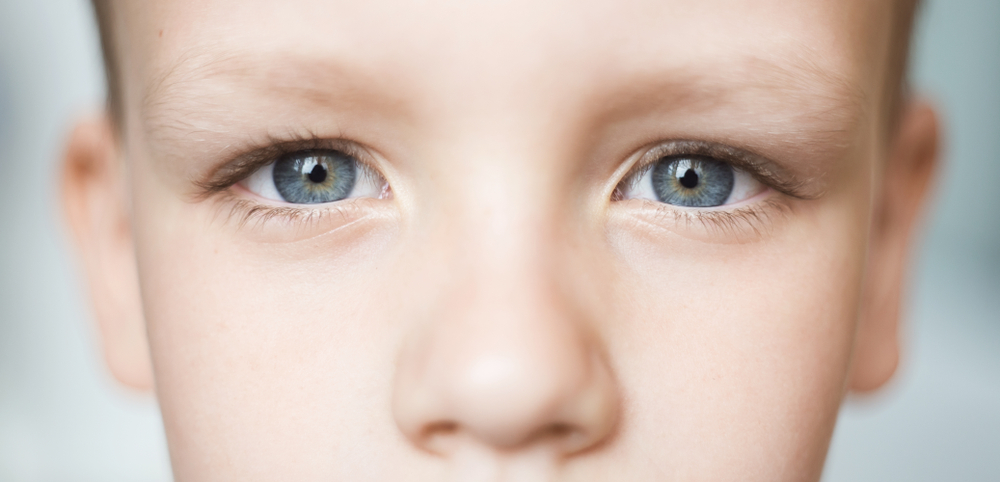 Nataliia Zhekova, Shutterstock
Nataliia Zhekova, Shutterstock
Saying More Than Sorry
Far too often, when a kid gets in trouble, they’ll be asked to apologize—and though they might utter a simple “Sorry,” they’re not always clear on what they’re actually apologizing for. When a child does something wrong, they won’t learn a lesson with a one-word response. They need to work through what they’re actually apologizing for—and that involves saying more than just “Sorry”.
Accepting Apologies
On the other side of this coin is accepting apologies and practicing forgiveness. Kids have a whole lot of emotions, and sometimes can be quick to anger if they’ve been wronged. It’s important to teach them when to practice forgiveness and let things go, instead of dweling on them and getting angry and frustrated.
Hold The Door
Holding the door open for strangers—especially your elders, or people who might need extra assistance—is a lost art in this modern, go-go-go world. It takes so little extra time and effort.
Choosing Topics Carefully
People are certainly more open about the things they talk about nowadays—but that doesn’t mean that kids need to be too. While kids aren’t exactly prone to bringing up religion or politics at the dinner table, it’s nonetheless important to instill what topics are and aren’t appropriate in public. For example, don’t ask people how much money they make.
And of course, making explicit what topics are taboo will sadly, inevitably mean many children have to give up their favorite subject of conversation: bodily functions.
Being Mindful
Many parents are so consumed with the idea that they need to let their child express their every whim, emotion, and thought, lest their become repressed in some way. Well, who says that’s a bad things? Sure, kids have the right to express themselves—but it doesn’t come at the expense of other people. They need to be mindful of other people’s feelings. This will teach them to be more personable and sensitive adults.
Dress Appropriately
It can be hard to get kids to wear something they don’t want to, and many parents opt for the easy way out. Unfortunately, this is a truly valuable lesson to learn. Kids shouldn’t be allowed to wear pajamas at every moment, or a sweat suit to a wedding. They need to learn the importance of matching the setting and blending in.
Waiting Their Turn
Unfortunately, there are always going to be people who bypass those little rules in society that keep things running smoothly—and that includes cutting lines, or other sneaky techniques. Kids might see things like this and automatically think, “If an adult did it, then I can too”. Parents need to teach kids that this is wrong.
Be Punctual
Phones have given people an excuse not to be as mindful of the time as they used to be. After all, if you can send a text that says “Going to be 15 minutes late,” all is forgiven, right? Wrong. Being punctual shows that you respect other people’s time, and also teaches proper time management.
Being Welcoming To Others
The stranger danger panic in the 80s did a whole lot of damage to a generation of kids. Few people today know how important it is to not be clique-ish or exclusionary, and what a difference speaking to new people and trying to make them feel welcome makes. If parents would teach their kids to notice and include others who might be feeling a little bit shy, that’s a social skill that nearly invaluable.
Being Empathetic
It can be easy for kids to be in their own little bubble—especially when phones and iPads get involved. This is kind of where cyber-bullying comes from: not understanding that the person on the other side of the screen is a real person. It’s important for kids to understand that everyone, from a person online, to a close friends, to a stranger passing by on the street, has feelings, and the actions we take can have an effect on those feelings.
Honesty
All kids end up telling a little white lie or two throughout childhood. While these are often harmless, it’s important for parents to teach their children the value of honesty at every opportunity. Instilling a sense of the importance of honesty at a young age will pay off in spades once they become teens and later, adults.
Being Grateful
Being grateful isn’t just about saying “Thank you” when you receive something. Many kids today don’t know just how good they have it. They seem to think that everything they have has dropped out of the sky. If parents regularly show gratitude for the gifts they’ve been given in life, children will take that example and run with it.
 Jihan Nafiaa Zahri, Shutterstock
Jihan Nafiaa Zahri, Shutterstock
Build Confidence
Building confidence goes hand in hand with being independent. It’s as important as teaching them manners. If they not only learn how to behave, but feel reinforced in their decisions and the skills they’ve acquired, it’ll carry them through life.
 PeopleImages.com - Yuri A, Shutterstock
PeopleImages.com - Yuri A, Shutterstock
Writing In Cursive
Less a matter of manners than practice, writing in cursive is nonetheless an important skill for kids once they’ve learned to print. Cursive is being taught in schools less and less, and if we were to simply let the practice die, future generations might not be able to understand many important historical documents written in cursive.
 Taphat Wangsereekul, Shutterstock
Taphat Wangsereekul, Shutterstock
Showing Kindness
Children learn by example, and parents need to teach them in their everyday lives by showing kindness not just within the family unit or at home, but out in the world—on the street, in stores and restaurants, and while traveling—to everyone they meet.
Listen To Authority
Sure, there have been examples about listening to your parents and respecting elders on this list. But kids today need to learn to listen to those in a position of authority—it’s actually a matter of their own safety. Parents can’t always be around and so, they need to be explicit about which authority figures, like teachers, their kid should be listening to—otherwise, the kid’s instinct might naturally be to go rogue.
Keep Tidy
Household chores and a big clean-up are one thing—but a lot of kids and adults could stand to learn the importance of keeping their personal space tidy at all times. Whether it’s putting away toys immediately after playing with them, or bringing dishes back to the kitchen right after having a snack, this life skill will hopefully prevent them from becoming one of those teens with a pigsty of a room.
No Swearing
Obviously, parents should be stopping kids if they were to attempt to curse at a young age. But even when they come of age, parents should discourage kids from using swear words. The English language is a beautiful things, and there are so many other, stronger words that can be used, no matter the situation. Swearing is the sign of a lazy mind and poor vocabulary.
Good Hygiene
The events of the year 2020 brought back handwashing—thank God—but we’re not sure if the lessons stuck around afterward. Most parents are pretty good about frequent handwashing with their kids, but without the lesson that they do not need to touch every surface, it’s kind of futile.
 PeopleImages.com - Yuri A, Shutterstock
PeopleImages.com - Yuri A, Shutterstock
Respect People’s Privacy
Kids are naturally curious—and that’s a good thing. Unfortunately, this can lead to kids asking intrusive questions. There’s a fine line here, and it can usually only be taught the hard way—AKA, after they ask a stranger at the coffee shop why they have a scar. If parents teach them what privacy is, however, they can start to glean the difference on their own, and avoid awkward situations.
Don’t Litter
This goes along with being tidy, and respecting space. Though kids may witness other children and adults littering, it’s important to emphasize that they have a part to play in keeping the neighborhood or playground clean as much as anyone else.
 Dmytro Zinkevych, Shutterstock
Dmytro Zinkevych, Shutterstock
Be A Good Sport
In today’s extracurricular activity-packed world, this is an extremely valuable lesson—be a good sport whether you win or lose. It’ll make you a valuable teammate and opponent.



